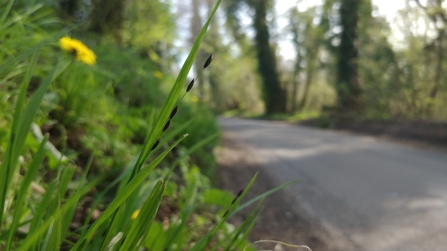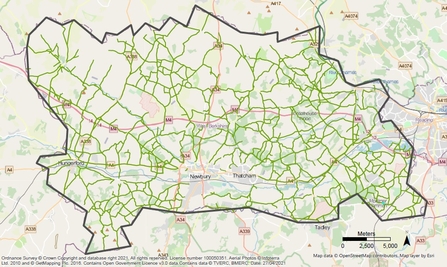The new Wild Verges partnership with West Berkshire Council aims to help native species simply by changing the times of year that roadside grass verges are cut back.
With over 1,700km of rural road verge under its stewardship, the council is keen to use it to make space for flowers and other plants which can support a huge network of insects, birds and mammals.


